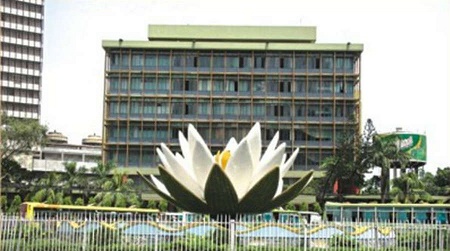The number of bank accounts with more than Tk 1 crore in deposit has significantly increased in the country following the COVID-19 outbreak, indicating a rising inequality and a rapid wealth accumulation by the rich.
The total number of bank accounts with deposit of over Tk 1 crore went up by 4,865 to 87,490 in September from 82,625 in April, 2020 when the economic shock of the coronavirus outbreak was at the highest, according to Bangladesh Bank data.
The amount of deposited money in these accounts also rose by Tk 38,002 crore to Tk 5,53,880 crore in September from Tk 5,15,878 crore six months ago.
Considering the number of bank accounts in the country, these accounts represent 0.077 per cent of the 11.27 crore bank accounts.
These account holders represent more than 42 per cent of the Tk 13,12,630 crore deposits in banks, showed the central bank data.
On the other hand, 10.04 lakh or 89 per cent of the country’s total bank accounts hold only Tk 75,583 crore which is only 6 per cent of the total deposit.
Experts and economists said that it was evident that the income inequality had long been rising in the country and the virus outbreak had worsened the situation.
More than half of the country’s population suffered income losses with the poverty rate increasing due to the COVID-19-induced slowdown in economic activities, they said.
At the same time, according to them, the rise in the number of bank accounts with higher deposits and the rise in the amount of deposits indicate that the rich have become richer.
According to the latest BB data, the number of bank accounts with more than Tk 1 crore in deposit increased by 1,453 over the July-September period with the amount deposited going up by Tk 12,690 crore.
The number of these bank accounts has risen almost three times along with a five-time spike in the deposited money in the accounts over the last 10 years.
The number of such accounts was 19,636 and the amount of deposits in those accounts was Tk 79,866 crore in March, 2009.
The General Economics Division of the Planning Commission estimated that the poverty rate in the country increased to 29.4 per cent amid the COVID-19 crisis from 18.8 per cent a year earlier.
Urban poverty, however, jumped to 34.8 per cent, it said.
The Centre for Policy Dialogue in a June study said that the country’s national poverty rate rose to 35 per cent in 2020 from 24.3 per cent in 2016 due to the adverse impacts of the coronavirus pandemic.
The Gini coefficient that measures income inequality might have increased to 0.52 in 2020 from 0.48 in 2016, it further said.
Policy Research Institute executive director Ahsan H Mansur on Sunday told New Age that the poor had become poorer and the rich richer in the period due to lack of appropriate measures to address the persisting inequality in the country.
He, however, said that rising inequality amid the pandemic was a global phenomenon.
Bangladesh Bank data indicates that the wealthy section of society experienced a boom in its wealth accumulation while the poor witnessed income losses, he said.
‘The reasons behind the trend are that rich people got support from the stimulus packages and many of them deposited the money into bank accounts while poor people were deprived of such opportunities,’ he further said.
Inequality in the country will not decline as policies are not suitable for reducing inequality, he observed.
Rich people in the country pay relatively lower taxes and often get exemption while fixed-income groups are highly taxed, he added.
Tax regime is used to address inequality globally, he pointed out.
Former Bangladesh Bank deputy governor Khondkar Ibrahim Khaled said that inequality was rising due to policies being followed for long, which are discriminatory in nature.
The coronavirus fallout has also led to further increases in inequality, he said.
Though there were no relevant studies carried out in Bangladesh, it was found that the number of billionaires in the USA and other developed countries increased amid the pandemic, he said.
The current Gini index score of Bangladesh reflects that the country’s rich are becoming richer and the poor poorer, Khaled noted.
The 0 score in the Gini index represents perfect equality, 0.5 extreme inequality and 1 perfect inequality.
Experts further pointed out that the growing per capita income and higher GDP growth also failed to address inequality issues.
The country’s per capita income grew to $2,064 in the 2019–20 fiscal year from $1,909 in 2018–19.
The country saw GDP growth of over 6 per cent in the past decade, except 5.24 per cent in 2019–20.














